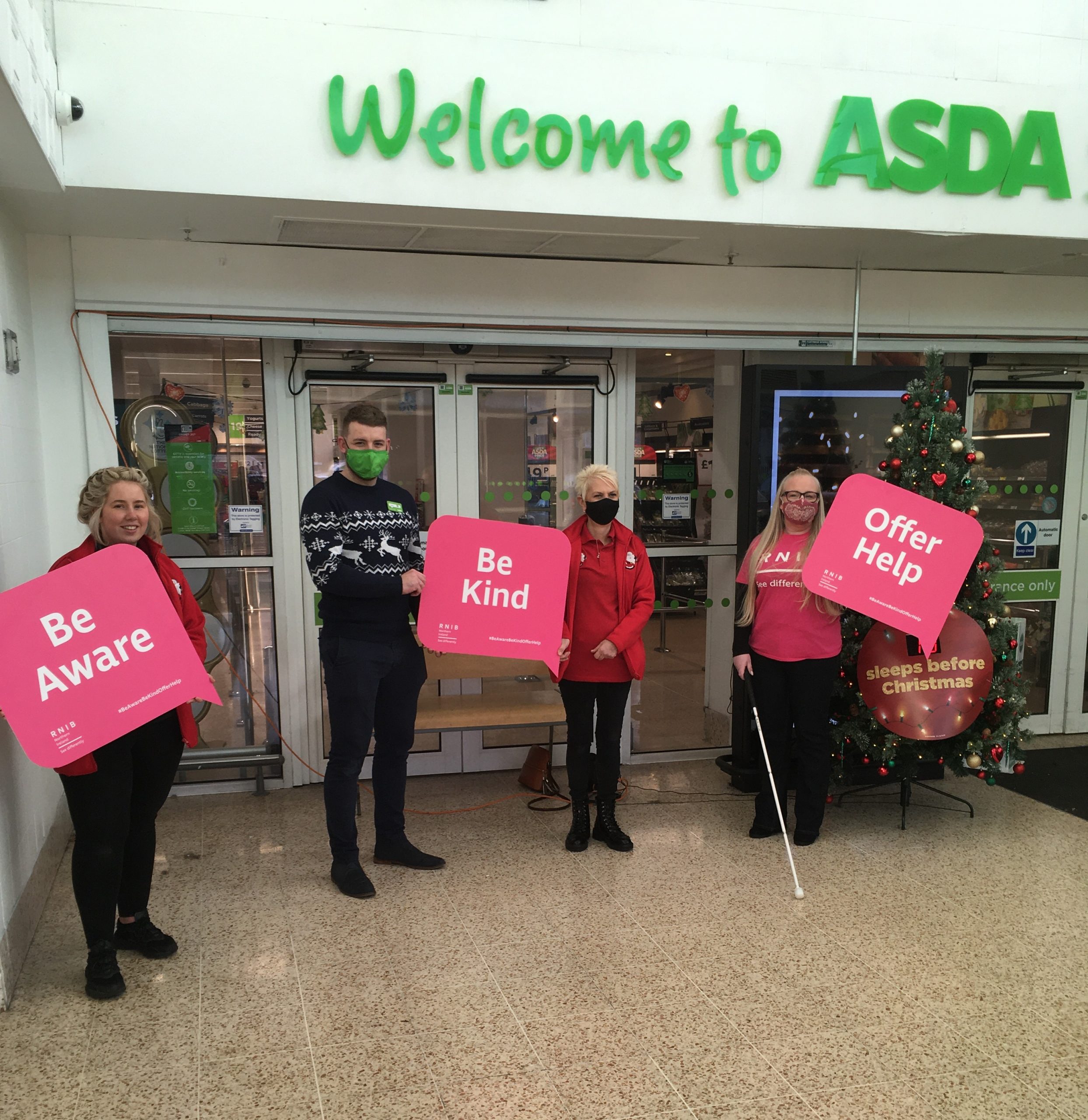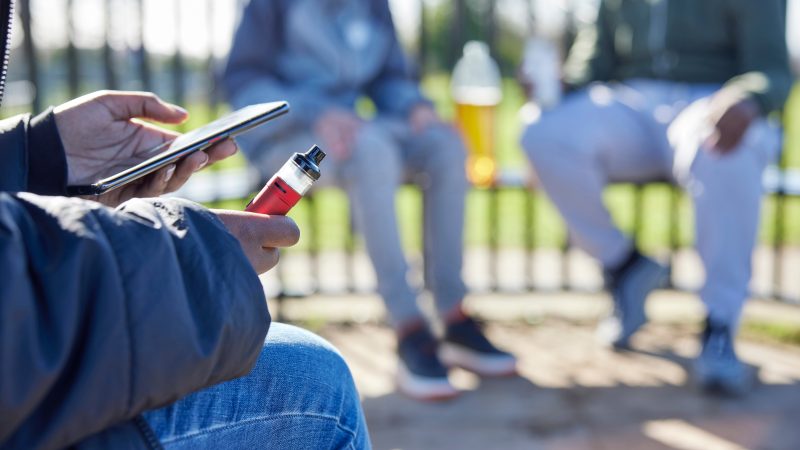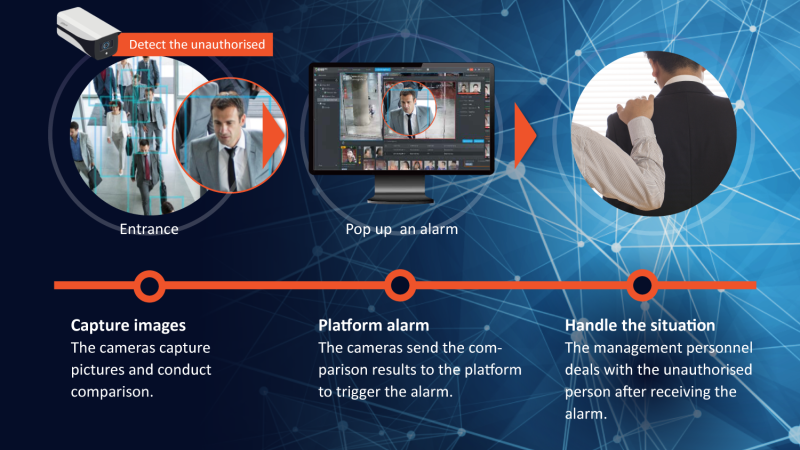Asda Pledges Support to Customers with Sight Loss

Sight loss charity, the Royal National Institute of Blind People (RNIB), has acknowledged the support of Asda in circulating RNIB’s best practice guidance to 140,000 staff across 640 UK-wide stores, 23 depots and 3 home offices.
Social distancing has turned the lives of blind and partially sighted people upside down, with two thirds saying they feel less independent now than before lockdown. Socially distancing safely in places such as supermarkets, restaurants, banks and public spaces, has become a real challenge.
Socially distanced challenges
The simple but essential RNIB guidance circulated by Asda, highlights the social distancing challenges faced by blind and partially sighted people and provides guidance to businesses and colleagues about what they can do to help.
Steve Packer, Special Projects Manager for RNIB, said “It is really gratifying to know that Asda has recognised the challenges that blind and partially sighted customers are facing whilst accessing their food and groceries.
“In sharing RNIB’s best practice guidance on their staff portal they are assisting in educating their store colleagues as to how to recognise a customer with sight loss and assist them where necessary. These actions help to give confidence to those with sight loss who shop at Asda stores.”
Blind or partially sighted
Charlotte Elliott, Senior Manager, People, Asda NI said “Covid-19 has had a big effect on how we all do our shopping, which is why we have done all we can to make our stores as accessible as possible, not least for those who are blind or partially sighted, so we’re really pleased to support the work of the RNIB.
“Our colleagues have guides on helping a wide range of customers with different disabilities to improve store experiences. This includes practical tips such as asking a customer if they want to move to a quieter place, sign language suggestions and emphasising the importance of being considerate and patient.”
Charlene Ferguson, who has Oculus Cutaneous Albinism, said: “In general, I find shopping difficult, but with Covid-19 I have found it even more so. I find the one-way systems hard to navigate as there might only be an A-board telling you which way is in and which way is out.
“I also struggle with the one-way arrow stickers on the floor and socially distancing in general because of my sight loss.”
Understanding and compassion
Charlene, who works as a Family Services Officer for RNIB, welcomes the action taken by Asda. She said “I think this is fantastic. It makes me feel more confident and shopping somewhere like Asda that understands some of the difficulties that blind and partially sighted people have to face. I also would feel more confident in asking a staff member for support and help.
“I hope this will help achieve more understanding and compassion at this very difficult time. I understand that people find it difficult as we are in a pandemic, but also I think people are forgetting kindness at the moment and a little kindness and support and help goes a long way.”
Highlighted below are some of the difficulties facing blind and partially sighted people when trying to safely socially distance and the best practice guidance for businesses is available on the RNIB website here:
Challenges with ‘the new normal’
- How can a blind or partially sighted person tell if they’re two metres away from the next person?
- How can someone with sight loss see the floor markings telling them where to walk and in what direction?
- Blind and partially sighted people have reported being shouted at with shops for not keeping a safe distance and have incurred injuries and embarrassment from Perspex screens at checkouts, etc.
- Guide dogs aren’t trained to adhere to social distancing restrictions.
- Changes in layout to both retail and public spaces brought about by Covid-19 mean that once familiar places are now unknown territory.







